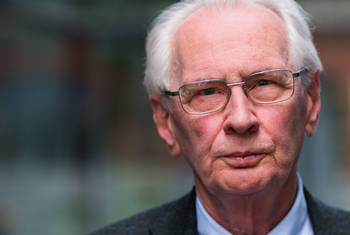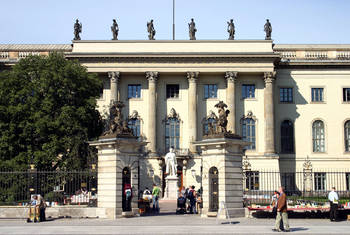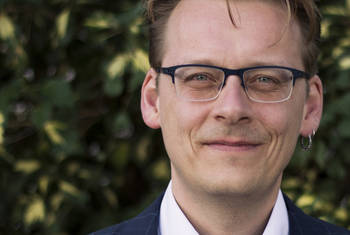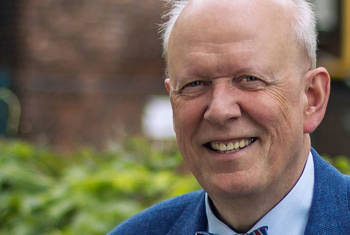Dieter Grimm Where Does the EU’s Acceptance Problem Come from and How Can It Be Counteracted?
Dieter Grimm is Professor of Law at Humboldt University, Berlin. Since 2001, Grimm has been a regular visiting professor at Yale Law School and New York Law School. He holds a number of high-ranking affiliations and positions within various international institutions, such as board member and vice-chair at the Hague Institute for the Internalization of Law, Honorary Member at the American Academy of Arts and Sciences, and used to be a Judge at the German Federal Constitutional Court. At a time of heightened anti-European Union sentiments, Grimm seeks to dismantle the lack of legitimacy that the EU holds. By outlining a new legal strategy for the European Union, including Europeanized elections and a clear constitution, Grimm hopes to revive European Integration.
Area of Research
Constitutional Law, Constitutional Theory, Constitutional Jurisdiction
since 2000
Professor of Law
Humboldt University of Berlin (Humboldt-Universität zu Berlin) (more details)
since 2001
Regularly Visiting Professor
Yale Law School and New York University Law School
2001-2007
Rector
Wissenschaftskolleg zu Berlin
1987-1999
Judge
German Federal Constitutional Court
1984-1990
Director
University of Bielefeld (Universität Bielefeld)
Center for Interdisciplinary Research
1979-1999
Professor of Law
University of Bielefeld (Universität Bielefeld)
1979
Habilitation
Goethe University of Frankfurt (Goethe-Universität Frankfurt am Main)
1971
PhD in Law
Goethe University of Frankfurt (Goethe-Universität Frankfurt am Main)
1967
Second State Exam in Law
Goethe University of Frankfurt
1965
LL.M.
Harvard Law School
1962
First State Exam in Law
Goethe University of Frankfurt (Goethe-Universität Frankfurt am Main)
- Academia Europaea
- American Academy of Arts and Sciences
- Berlin-Brandenburg Academy of Sciences and Humanities (Berlin-Brandenburgische Akademie der Wissenschaften)
Prizes
- Verdienstorden der Bundesrepublik Deutschland (1999)
- Lichtenberg-Medaille (2015)
- Ordre national du Mérite (2004)
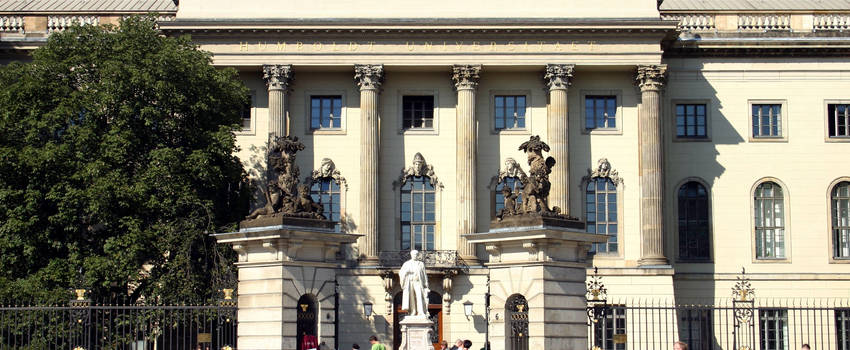 © Heike Zappe/ HU Berlin
© Heike Zappe/ HU Berlin

Humboldt University of Berlin (Humboldt-Universität zu Berlin)
In 1810, Wilhelm von Humboldt’s idea of founding a new type of university became a reality. The combination of teaching and research, academic freedom and the comprehensive education of students was not only a model for the Prussian university but for the world as well. And a new era for universities and academic research began. Each year, over 6,000 people decide to study at Humboldt-Universität located in the heart of Berlin. There are few other places where you can choose from 190 degree programmes, from Agricultural Science to Asian Studies. The university is first and foremost dedicated to fundamental research. Humboldt-Universität’s strengths in particular are in research on antiquity, history, philosophy, and quantitative economics as well as the life sciences, especially theoretical biology, neurology and immunology. It also has strengths in mathematics, material and optical sciences, and climate and sustainability research. These key strengths are shaped by twelve collaborative research areas, nine graduate research clusters and eleven interdisciplinary centres. Three integrated research institutes strongly connect and coordinate different research areas while developing focused topics for the future. (Source: Humboldt-Universität zu Berlin)
Map
The European Union does not have sufficient legitimacy and is not well accepted by its citizens which leads to a negative impact on the process of European integration. DIETER GRIMM identifies three sources of this problem. First of all, the way the European Parliament, the democratic body, is elected and works is too far from the citizens. Second, the principle of subsidiarity is applied differently in every member state but remains without any importance. The third source are the European treaties: as the legal foundation they were not determined by the EU itself but by the members states. Despite being ‘just’ treaties, they are considered the constitution and that creates several complex consequences in the democratic setup and the interplay between the EU and the member states. In this video these three aspects are explained in detail presenting possible solutions. GRIMM asks for a Europeanization of the elections as well as for a reorganization of the voluminous treaties into a clear constitution on the one hand and ordinary law regulating the functioning of the EU on the other hand.
LT Video Publication DOI: https://doi.org/10.21036/LTPUB10285
Europa ja - aber welches? - Zur Verfassung der europäischen Demokratie
- Dieter Grimm
- Published in 2016


